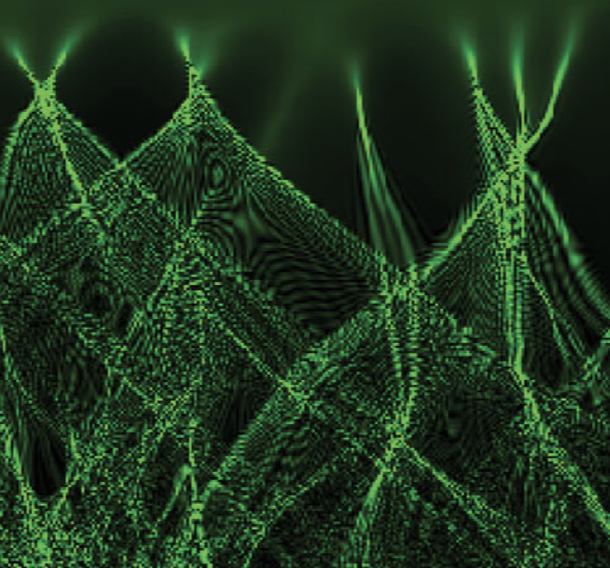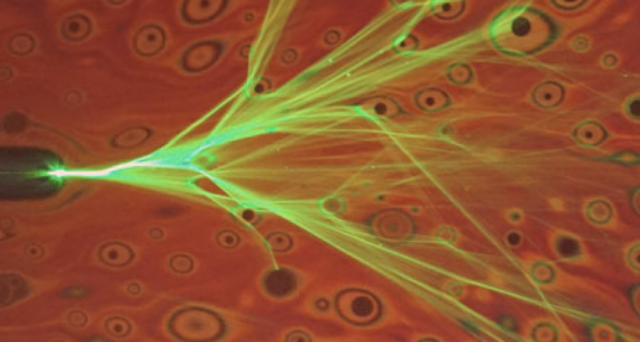
Science is often viewed as utilitarian. We explore the natural world so that we can plunder its secrets for our own benefit. Indeed, this is often precisely the sort of science that funding agencies seek. But, for most scientists, the utilitarian comes second to other motivating factors: The observation of beauty and the challenge of a unique puzzle are the two that spring to mind. Today, in the spirit of observing beauty, I’d like you to sit back and enjoy the view of light flowing like water.

Light exiting an optical fiber and flowing through a thin film of soapy water. (credit: Anatoly Patsyk)
The picture above looks like a river delta, with many tributaries and rivulets coming together in one Amazonian outflow. All that is missing is the fish. But that is light flowing out of an optical fiber and into a layer of soap. The soap layer traps the light, so it only spreads out in the plane of the soap. Yet the layer is also uneven, so the light cannot spread out evenly, and you get this branching pattern. This is one of the pictures from a group of scientists exploring how light flows in thin films.
The making of an optical river
To create an optical river, you need to do the following: start with a nice flat surface and place a layer of detergent (soapy water) with a tiny bit of dye in it. After some time (and given the right mixture of soap), the soap film will settle down so that it is not moving around. Then, shine some light on the edge of the soap layer. If you get the focusing conditions just right, the light will be trapped within the soap layer. The light will then start to spread out across and through the soap, exiting from other edges.
No comments:
Post a Comment